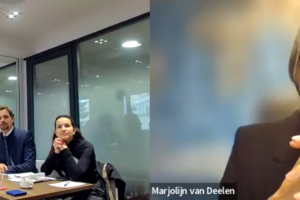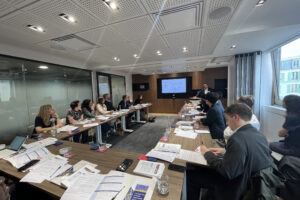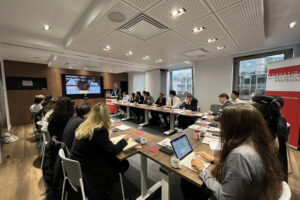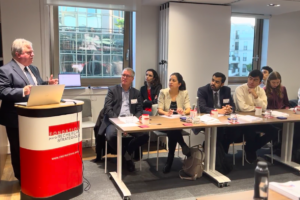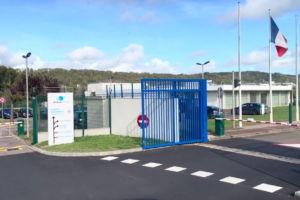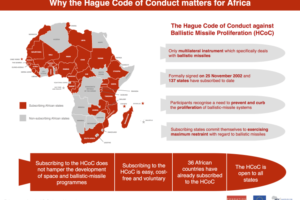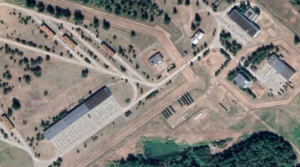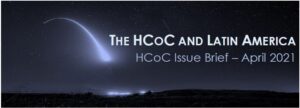Youth Group – 1st Workshop:
Ballistic Missile Proliferation
25-27 October 2023
Paris, France
The first meeting of the Youth Group took part in Paris from 25 to 27 October 2023. During these three days of the workshop, the fellows had a chance to develop their understanding of missile proliferation. Various lectures and conferences with renowned experts were organised on the important technical elements to take into consideration to analyse missile proliferation.

Keynote Speech by Amb. Marjolijn van Deelen, EU Special Envoy for Non-Proliferation and Disarmament
The workshop was kicked off with an exchange with Amb. Marjolijn van Deelen, EU Special Envoy for Non-Proliferation and Disarmament, who noted that “it’s important that the new generation is involved in the issue of non-proliferation and disarmament as it will help to contribute to the challenges that we face to come up with new ideas and new energy and put them forward.”
Experts focused on tools available for analysis, and in particular open-source intelligence. They elaborated on how these new assets can be used to increase the information available on missile programmes around the world. Presentations allowed the fellows to better understand the evolution of missiles in regions such as North Korea and the Middle East. The agenda also considered the evolution in the space sector, with a session dedicated to the emergence of “New Space” and how it impacts the global efforts to curb missile proliferation.
In addition to these discussions, the fellows were invited to meet with diplomats at the French Ministry of Foreign Affairs (Quai d’Orsay) and with officers from the French Ministry of Defence. These meetings were an opportunity to better understand how a subscribing state to the Code, particularly concerned by missile as well as space issues, perceives the challenges caused by the spread of missile programmes today.
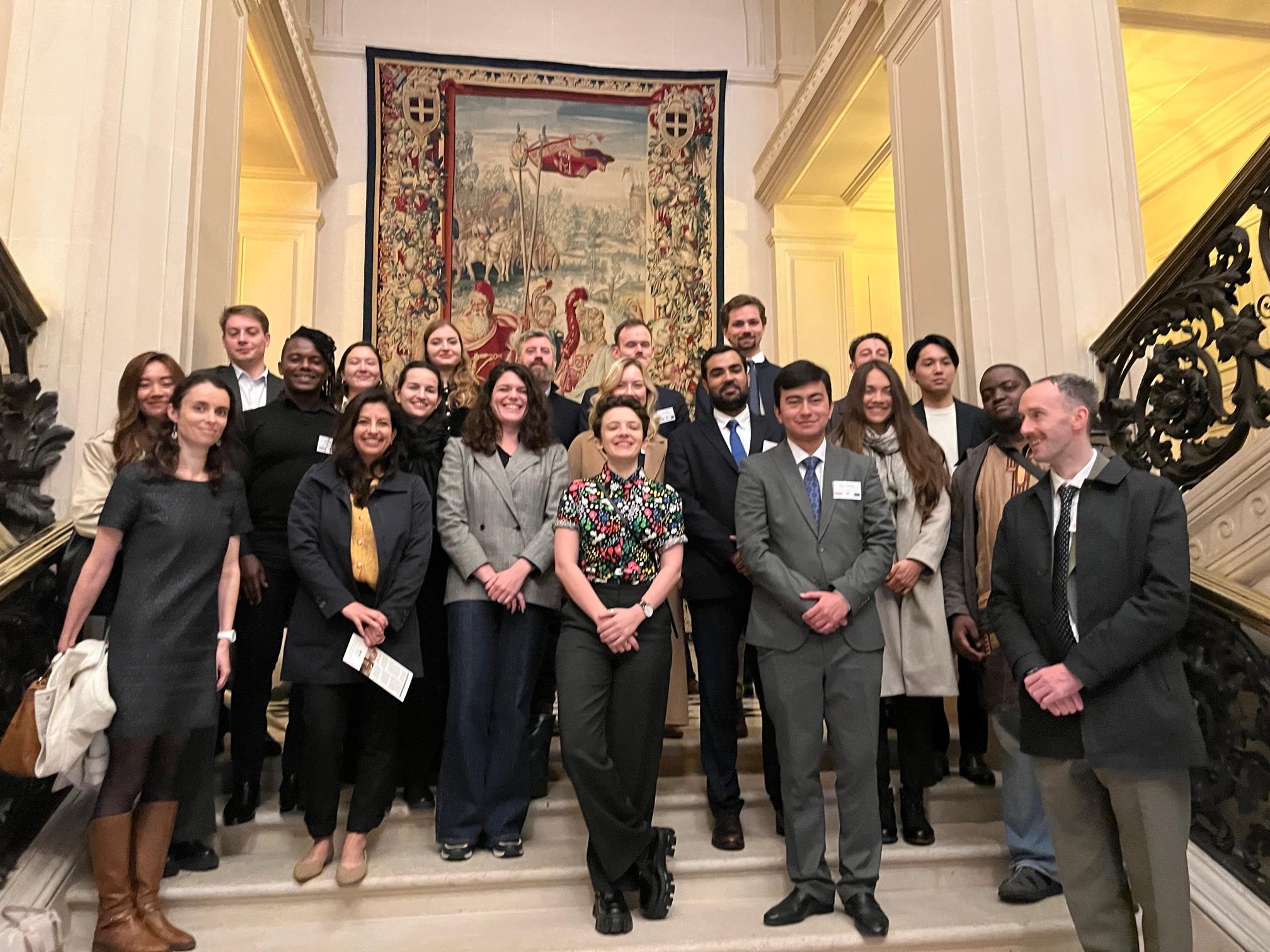
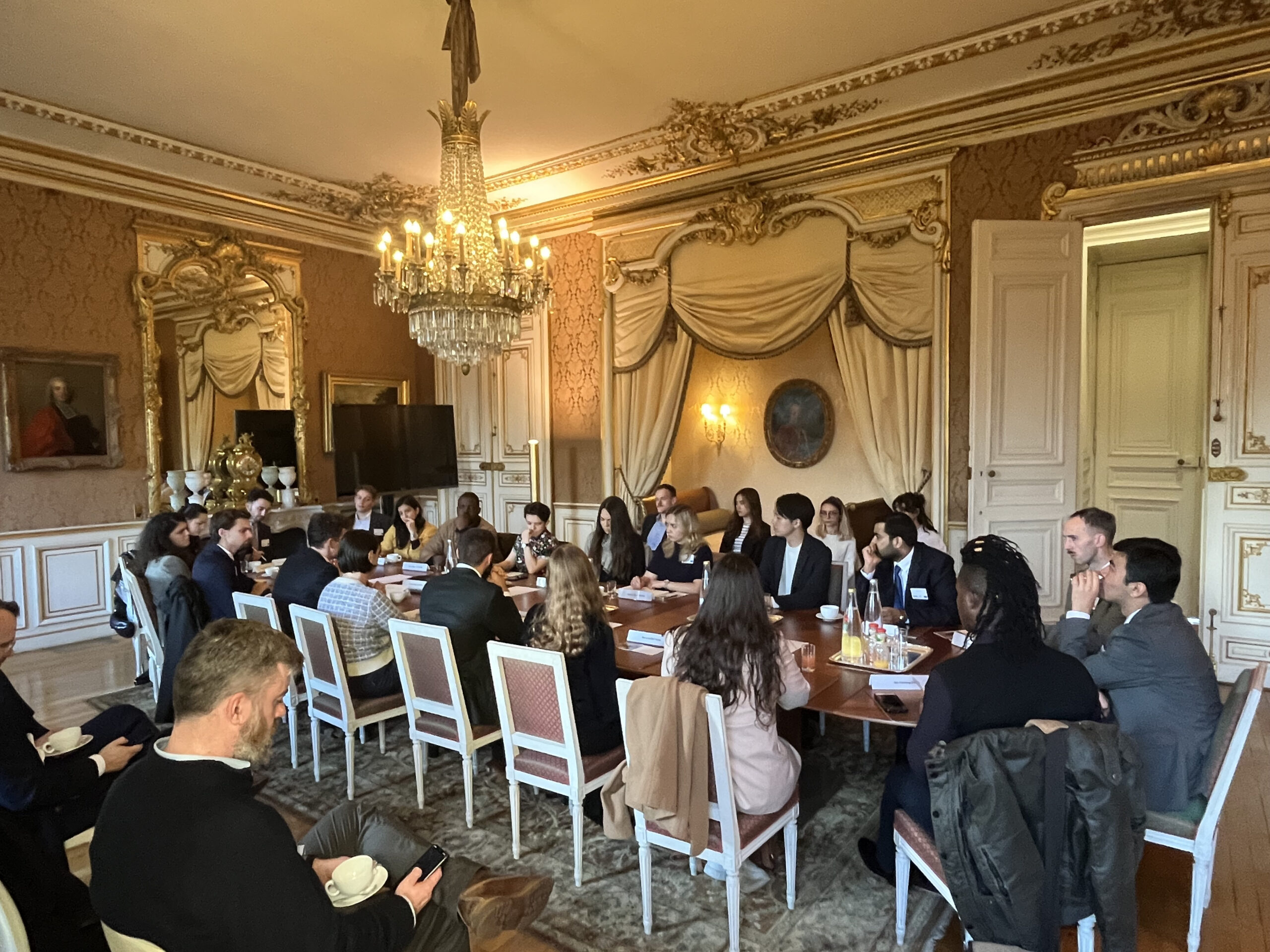
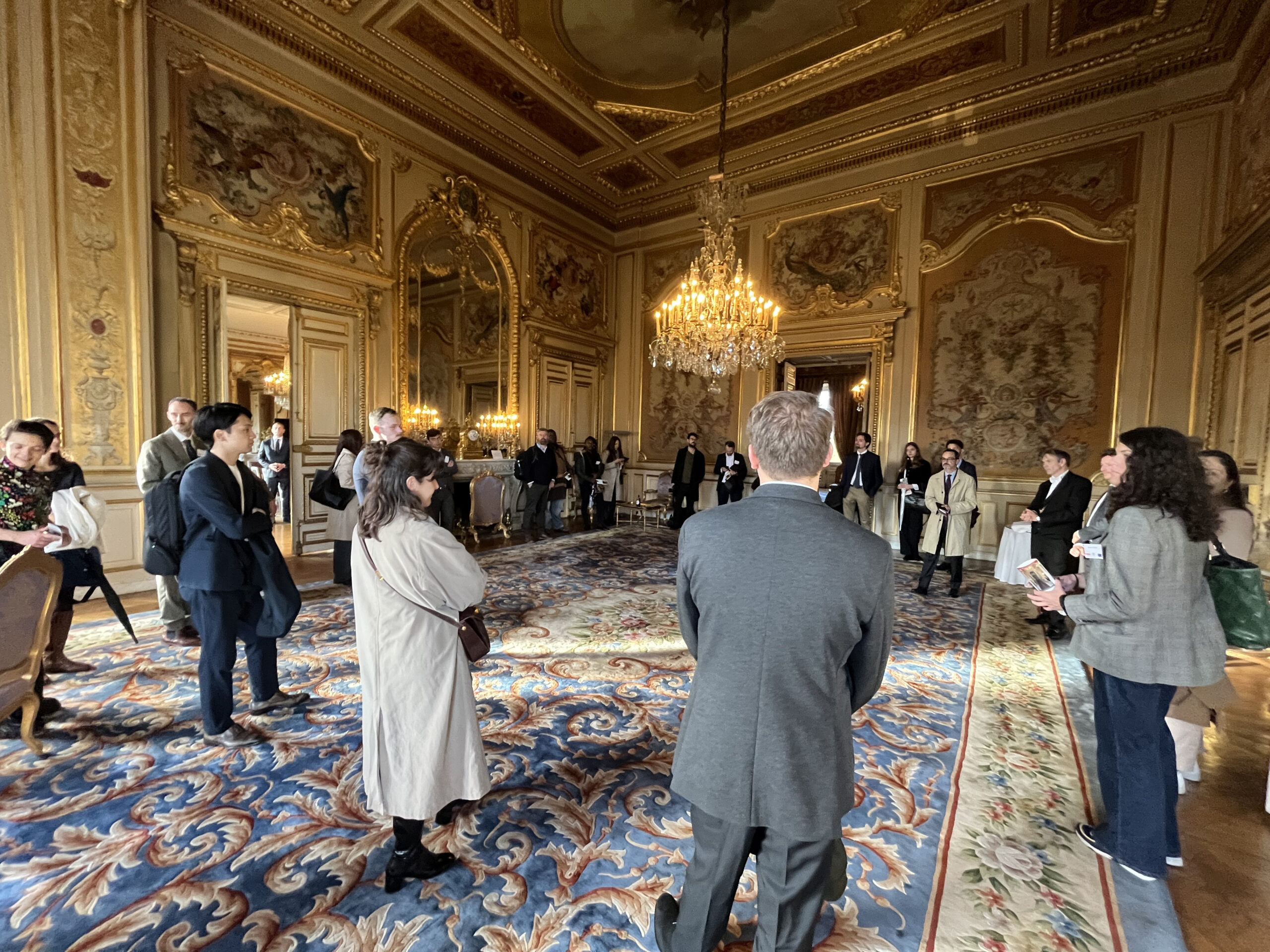


Finally, the group was invited to visit one of the main production site of Ariane Group in Les Mureaux. On this site, located 50 km out of Paris, the company integrated the Ariane 5 cryogenic main stage and currently prepares the Ariane 6 launchers. The site is equipped with powerful computing, simulation, production (machining, forming and surface treatment), testing and inspection systems. Production includes large metallic structures, pyrotechnic and fluidic systems and lay-up manufacturing of composite structures. As the site is also involved in the production of the French M51 ballistic missile, the fellows had a chance to discuss with the company’s executives on the technical and political considerations linked to the production of these systems.
The Youth Group is now going to start working on a joint paper dedicated to the dynamics of missile proliferation in the next ten-years, with the help of the technical advisors involved in the project.
